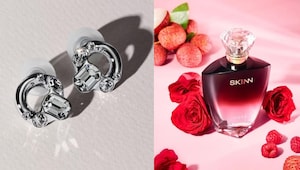In conversation with Nicola Kilner, the co-founder of The Ordinary about all things beauty
Cosmo India and Nicola Kilner, talk about the state of skincare and magic around her company DECIEM INC.

Cosmo Editor Nandini Bhalla in conversation with Nicola Kilner, CEO and Co-Founder of DECIEM INC., The Ordinary’s parent company, on how the brand achieved cult status, why the beauty industry needs more honesty, and the (fascinating) future of skincare.
Nandini Bhalla: What is the story behind The Ordinary?
Nicola Kilner: “When we presented The Ordinary to the biggest retailers in the UK and US, they refused to listen to us. They thought consumers wouldn’t understand the concept, and were leaning towards anti-ageing and glow-inducing products. Luckily, we decided to launch the brand anyway. We eventually tied up with a website in the UK, which was relatively unknown, and that’s when we witnessed the power of the consumer explode overnight— not just consumers, but also beauty journalists who supported The Ordinary because they were impressed with our formulations. And a few months later, the retailers who had rejected us invited us to join them!”
NB: What is your earliest memory of beauty?
NK: “My mother getting ready with rollers in her hair...and she would use the L’Oréal Paris Elnett Hairspray after—the gold bottle stirs nostalgia. My mom also followed Clinique’s three-step CTM routine religiously.”
NB: What’s your definition of beauty?
NK: “I have always believed that people look the most beautiful when they’re smiling—happiness is the best look on anyone. A smile makes a huge difference to how people perceive you, and also how you view yourself... There is definitely a link between beauty and mental health.”
NB: Why is it so important for brands to be honest, and to not make claims that sound revolutionary but might be untrue?
NK: “The inspiration for The Ordinary stemmed from pharmacies. When you have a headache, you buy a Paracetamol, because you know it’s effective and safe and has been trusted for so many years. But when it comes to beauty, you could walk into a department store and find a Vitamin C serum—and depending upon the store you go to—that could cost anywhere between $5-$50 [`400- `4,000]. And it’s hard to decide which one is effective because there is no transparency. You might see Vitamin C on the ingredients’ list, but you wouldn’t know the concentration of that ingredient.
So we looked at the pharmacy industry and the ingredients that have been around for decades to ensure that the consumer is getting the most effective and safe form of that ingredient. The consumer is so much more knowledgeable now. When we launched six years ago, people didn’t know about niacinamide. They knew about glycolic acid, retinol, and Vitamin C, but niacinamide was relatively unknown. Fast forward to today, and it is our number one selling serum—we sell one every two seconds...the numbers are just phenomenal!”

NB: What skincare trends do you think we’ll see in the coming years?
NK: “A big trend for all consumer goods, and not just skincare, will be stainability and social impact. People, today, want to understand a brand’s values—how they treat their employees, how they’re being responsible, the supply chain, etc. This makes me happy, because the world is becoming kinder, people are really starting to care, and they are cautious about where their money goes.”
NB: Do you think skincare for the scalp is what we are going to see more of?
NK: “We have two scalp serums. We introduced the Multi-Peptide Hair Density Serum, when we launched on Nykaa last year. It’s a relatively good seller around the world, but, in India specifically, it’s in our top five. Indian women really care about their hair, and I think having a serum that actually delivers all the nutrients to the follicle is really working here. And we have applied for a patent for the Natural Moisturizing Factor+Ha, because the texture is milky, but it penetrates the scalp in a way that doesn’t make hair sticky at all. When you have a healthy scalp, you see the impact on your hair relatively quickly.”
NB: Tell us about a beauty practice that you love...
NK: “During the pandemic, given that I was at home, I was repeating my skincare routine thrice a day, and I really enjoyed it. My skin definitely looked better, and it felt like a nice reset in the middle of the day to feel fresh again.”

NB: What’s the best business advice you’ve ever received?
NK: “It was actually from [late] Brandon [Truaxe, an Iranian-Canadian computer scientist and co-founder of DECIEM], who told me that ‘You catch more bees with honey than vinegar’. It means that kindness gets you further in life. No-one needs to raise their voice, or be angry or rude...even if you’re unhappy with something, you can still have a kind, collaborative, and quick conversation to find a solution. I am really proud of DECIEM, because whenever we carry out consumer studies, the value that always comes back is kindness, followed by diversity. We have created a culture where kindness is embedded in the way we behave and treat people. It’s a big shift in business because 50 years ago, we worked in a male-dominated world, where people would shout the loudest. But now, it’s more about collaboration.”
NB: How do you cope when things get tough?
NK: “I am quite calm. I believe the beauty industry can have the best impact, because while skincare products won’t change the world, they can make someone feel better.”
NB: What are your plans for the Indian market?
NK: “The Ordinary launched with Nykaa, so we’re exclusive with them for the first year...and it is such a good platform. What really surprised me—which I was not aware of—is how amazing their delivery infrastructure is in India. People at Nykaa told me that over 90% of the country can be reached within 72 hours of ordering, which is actually better than in most of the US...that’s phenomenal!
But India is a tough market for distribution, particularly for bricks-and-mortar shops. As a brand, we prefer online distribution because anyone who’s buying the product online is on your product page and they can read about your brand Photograph: and the product. So selling online is always a priority for us.”
more from Beauty

Why blush balms are the low-effort glow stick for fuss-free radiance

“Pebbling” is the non-toxic, genuinely adorable dating trend we all needed

Is 'future faking' the new gaslighting? Decoding this new dating trend

Bad at gifting? Check out these stocking stuffer ideas based on each zodiac sign

15 new Christmas movies you might want to add to your 2025 holiday watch list

Why glycolic acid is your skin's best friend for the winter season

How training for a marathon became the most honest conversation I have ever had with myself

Emily in Paris season 5 is back—and we’re still hate-watching every minute of it

Women have long been having sex on the first date—so why do some of us still feel shamed?

The 'shixie' is a modern take on the 70s shag haircut: 10 style ideas and how to wear the trending look
